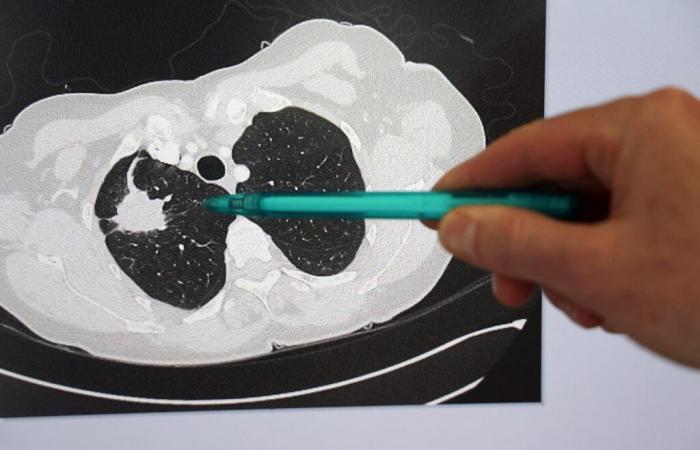A pilot screening program for lung cancers, the deadliest, will be deployed in France by the end of the year, a key step before a probable generalization of organized screening, the national institute announced on Thursday January 23 of cancer (Inca).
This project, which plans to include 20,000 participants, will be aimed at people aged 50 to 74, smokers and ex-smokers who have quit for less than 15 years with a cumulative tobacco consumption of at least 20 packs per year. They will be asked to have two low-dose chest scans one year apart, then every two years, and will also be offered smoking cessation.
“We hope that the first scanners will be done at the start of the second half of 2025”indicated Professor Norbert Ifrah, president of the Inca, during a press conference.
Reduce mortality by 20 to 25%
Several international studies have in fact shown that low-dose scanning could reduce mortality linked to these cancers by around 20 to 25%, he summarized.
The pilot program is “a prefiguring step whose results will condition the generalization of organized screening”summarized the president of the Inca, according to which “we can reasonably hope for generalization even before 2030”.
“The interest of screening is major for public health” given that lung cancer is the deadliest in France, with 30,400 deaths each year, he stressed. And “This year, lung cancer deaths are expected to exceed breast cancer deaths among women”.
-Tobacco remains the main risk factor
The five-year survival rate for lung cancer is around 20%, knowing that three-quarters of cases are detected at an advanced stage of the disease, which reduces the chances of treatment and cure. Tobacco is responsible for around 80% of diagnosed cases.
Named Impulsion, the pilot project, chosen after examination by an international evaluation committee, is carried out by a consortium coordinated by Professor Marie-Pierre Revel (Assistance Publique – Hôpitaux de Paris) and by Professor Sébastien Couraud (Hospices Civils de Lyon ).
The Inca will finance the organization to the tune of 6 million euros, and Health Insurance will notably cover 100% of the low-dose scanners.
In France, three cancers (breast, colorectal, cervical) are the subject of organized screening, offered systematically to a target population.






